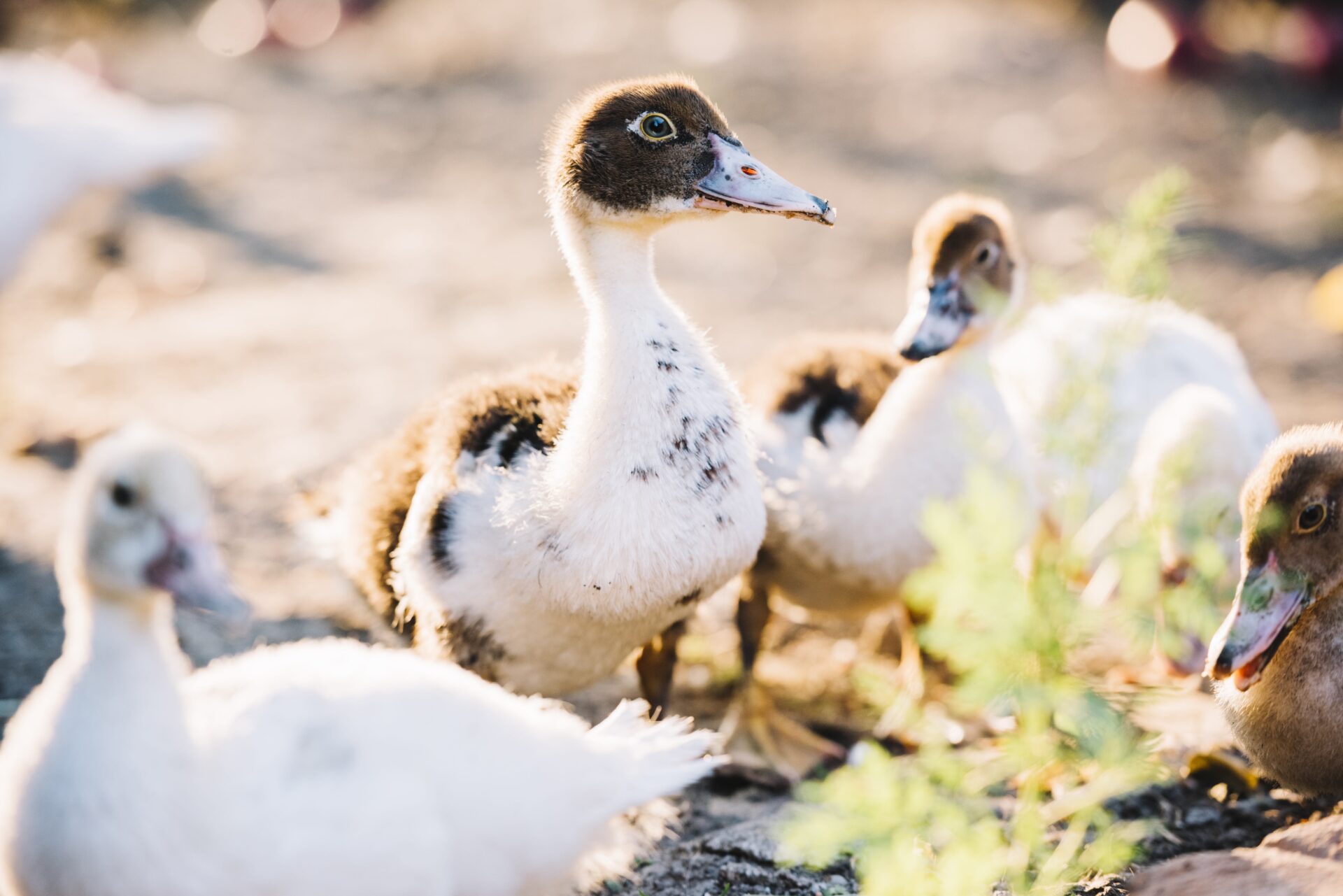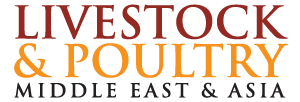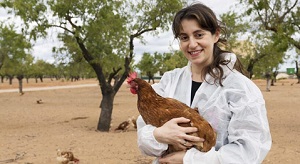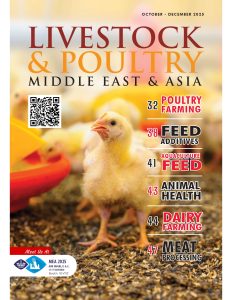Previously confined to Asia, the Highly Pathogenic Avian Influenza (HPAI) virus now affects the entire world. The impact on animals has already been devastating. Since it was first identified, the H5 strain of avian influenza and its variants have led to the slaughter of over half a billion farmed birds. Wild-bird deaths are estimated in the millions, with around 600,000 in South America since 2023 alone – and both numbers potentially far higher due to the difficulties of monitoring.
Avian influenza has already crossed a species barrier by infecting a range of mammals. Since 2022, 10 countries across three continents have reported mammal epidemics to the WHO and according to available information, at least 26 species have been affected. Sporadic cases in humans have also been reported, where the infection can cause a severe illness with a high mortality rate. Over the last 20 years 878 human cases have been reported, of which 52% were fatal. Since January 2023 8 cases have been reported and these cases, so far, have primarily resulted from close contact with infected birds and contaminated environments.
Ceva’s role in preventive medicine against this disease
Ceva has always supported all forms of sustainable agriculture. For this reason, and in response to the financial and psychological distress faced by farmers, due to HPAI, Ceva has chosen to invest in R&D to find effective and practical solutions to complement the biosecurity measures already in place. But that’s not the only reason. In its One Health vision, Ceva is committed to developing preventive medicine to mitigate the impact of zoonotic diseases such as avian influenza; this has become one of the company’s top priorities.
Ceva has been effectively vaccinating chickens against avian influenza for over 10 years. A vaccine, suitable for layers, broilers, and practical for farmers, was developed thanks to innovative technology applied to a proven 50-year-old vaccine: a frozen vaccine against Marek’s disease (HVT). The main advantage of this vaccine is that it includes hatchery vaccination. Vaccinating day-old chicks in a controlled environment allows them to be protected earlier, significantly reducing their risk of infection throughout their lives. Furthermore, only one unique injection is required. Once vaccinated, the chick remains protected all along its life. On top of this, science has successfully bypassed maternal antibodies that prevent day-old chicks from absorbing vaccines, ensuring their immunity against early-age avian influenza strains.
Ceva has also been instrumental in developing DIVA vaccines designed to allow the distinction between animals naturally infected and those that have been vaccinated. This distinction is crucial for several reasons including disease surveillance as DIVA vaccines facilitate epidemiological surveillance by enabling veterinarians to differentiate between infected and vaccinated animals. By distinguishing infected animals from vaccinated ones, control programs can be more targeted, potentially reducing costs associated with managing animal diseases.
The protection of this vaccine has been evaluated against different strains of avian influenza (H5N1) isolated from various parts of the world and belonging to several clades (categories of strains) of this rapidly evolving virus. The vaccine’s efficacy has been proven, as it ensured a survival rate of 80 to 100% in tested flocks, regardless of the origin of the avian influenza strain. This vaccine is registered in the USA, registered, and commercialised in Egypt, Mexico, Vietnam, and Bangladesh. In 2015, the USA implemented a vaccine bank with 100 million doses ensuring wider protection against this disease.

Since 2020, considering the repeated episodes of avian flu and drawing on its experience, Ceva has also accelerated its research and development efforts to find a duck vaccine against HPAI conducting initial tests as early as May 2021 and seeing promising results. Ceva is the first and only company to have developed an mRNA platform for animals in less than three years. Ceva has created a platform designed to rapidly respond to emerging viruses and enable the development of vaccines that cross species barriers to prevent their spread. In July 2021, Ceva urged French regulators to consider vaccination against avian flu, particularly for ducks, which are at higher risk due to their high excretion potential. In October 2021, the French Directorate General for Food (DGAL) agreed to initiate field trials for two vaccine solutions, including Ceva’s.
These first trials started in May 2022, unveiling its results in May 2023. Ceva provides a simplified vaccination process that meets farmer’s expectations. The main advantages of the Ceva vaccine include hatchery primary vaccination, which ensures better vaccination quality, reduces biosecurity risks, significantly decreases the need for on-field vaccinators in a labour shortage context, and is cost-effective. The 28-day vaccination booster is carried out within the same schedule as other routinely administered vaccines.
The results found it to be a high-performing effective vaccine that efficiently protects ducks and reduces excretion and contamination gaining scientific validation in France, demonstrating the ability to reduce virus excretion in ducks which was confirmed with an R0<1. Encouraged by the promising results of tests carried out by ANSES, French authorities decided to vaccinate ducks from October 2023. However, we have already seen a positive impact of the vaccination as by the end of winter 2023-2024, there were only 10 contaminated outbreaks, compared with 300 in March 22. To further this success, in 2024 Ceva’s vaccine was selected by French authorities for further rounds of vaccination, after its proven capabilities in reducing the spread of avian influenza within ducks. The second vaccination programme just started on October 1st 2024.
At Ceva, we firmly believe that as veterinarians, our role in advancing preventive medicine and vaccines is essential not only for the welfare of animals but for the well-being of society as a whole. In the ongoing battle against zoonotic diseases, innovation in preventive solutions is the most effective path forward.
Our commitment to the global poultry industry is a testament to this, as we contribute to the One Health approach, recognizing that the health of animals, humans, and ecosystems are deeply interconnected.
By protecting animal health, we safeguard ecosystems, human health, and the future of our planet.




















